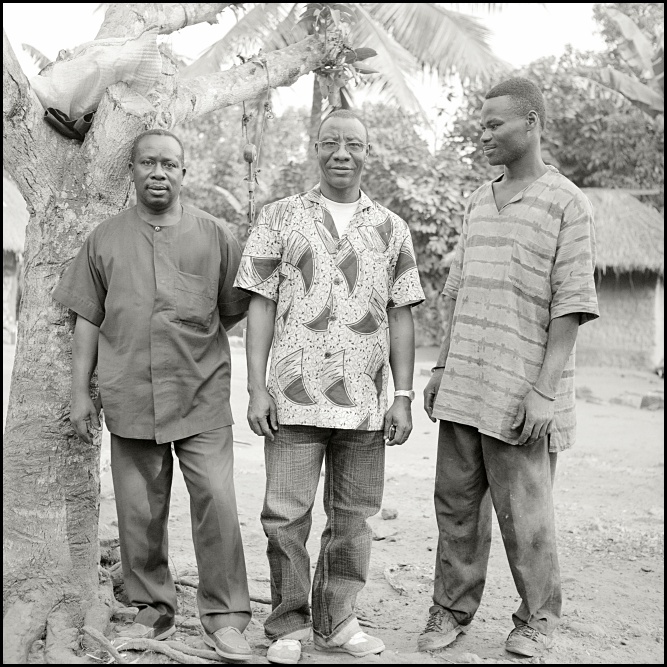informal economy...
In addition to coffee, the plantation yields cacoa, cassava, yam, coconut palm, pineapple, mango, banana, various and sundry other subsistence crops, chickens and goats. Throughout the afternoon we have been feasting on fresh split coconut juice and the soft sweet white meat within. Every time I finish one coconut, another is hacked open with a machete and handed to me. I think I will die bursting from coconut. Very few Togolese drink coffee. Yet as a courtesy to their visitor, a prodigious effort was made to prepare a cup from the farm's own robusta harvest. First the beans were "roasted" in an aluminum pot over an open fire inside the doorway of a small cooking hut. The smoke and heat were intense, choking. Yet the woman tending to this task was profoundly pregnant and close to the fire, slowly stirring the beans with a wooden spoon and registering not the slightest discomfort. My own eyes burned and watered helplessly at the spectacle. After the roast came the "grind". This was accomplished with the traditional wooden mortar and baseball-bat-sized pestle, pounding pounding pounding pounding, all brute force and grim determination. The calories that went into this task alone would fuel a sedentary man like me for a full week. Finally a little brown coffee dust was yielded, sieved, and boiled into a scoop of water. It was like earth and sweat and smoke, and all the other individual ingredients of its making blended on my tongue, nothing like coffee at all. It was possibly the finest, trueist cup I have ever tasted in my life. Togo, January 2008. Rolleiflex T, Neopan 400. |
